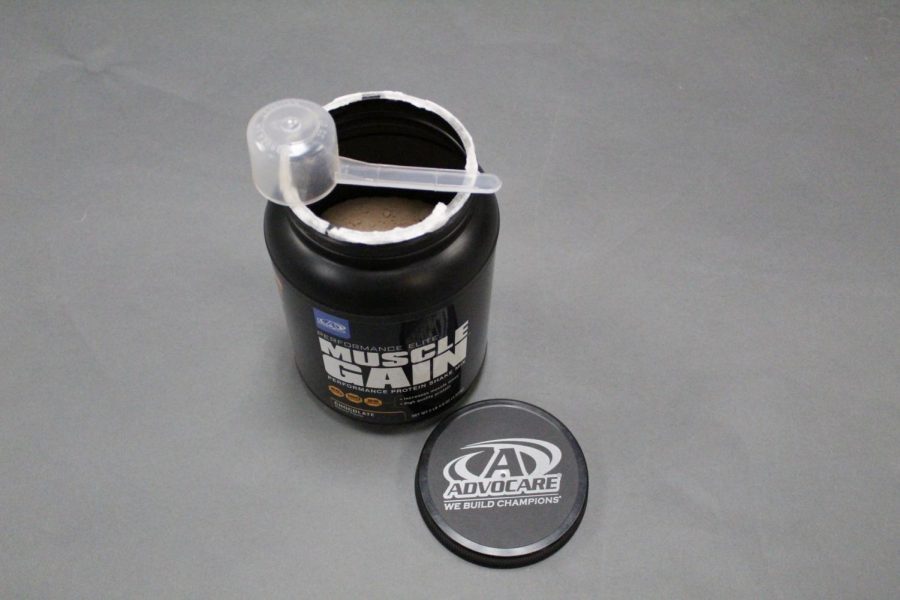Pushing the Max
Body supplements are beneficial to enhance athletes performance while working out, but not knowing the effects and when best to take them may performance.
Protein Powder is a body supplement that athletes use to enhance their workout performance.
CREATINE:
Creatine has been a popular body supplement choice among athletes, known for its ability to enhance muscle mass and strength. Creatine can come in many forms and does not need to be prescribed, aiding its popularity in teens. Common forms include powder, tablets, energy bars and drink mixes; they are available and are located throughout drug stores, supermarkets and nutrition stores.
“It’s easy to find different types of body supplements,” senior Ryan Shaputis said. ”I prefer to get mine at GNC because I’m used to the brand and it’s accessible for long term use.”
According to Rudy Mawder from Healthline, in its natural form, phosphocreatine (creatine and phosphate) helps make adenosine triphosphate (ATP) in the body. ATP provides the energy for muscle contractions. Though the body produces these contractions every day, it is not enough for when athletes work out. When an athlete works out, the body uses the ATP stored from throughout the day; after it is used, more needs to be created. If creatine is taken, it can be used as a backup phosphate donor to continue replenishing and creating the diminished ATP.
“I like using creatine,” Shaputis said. “The body makes creatine naturally, but when I take more in the form of a body supplement I have an extra energy boost and I can work longer and faster.”
This muscular boost may help athletes achieve flares of speed and energy, especially during short bursts of high-intensity activities such as weight lifting or sprinting.
PROTEIN POWDER:
Based on both body goals and choice, athletes may take some form of protein supplement as a way to enhance natural body processes.
“To gain muscle, athletes need to consume more protein than what the body breaks down through natural processes,” Healthline writer Grant Tinsley said. “While it’s possible to get all the protein needed from protein-rich foods, some people struggle to do so.”
Consuming enough protein is essential to gaining muscle. The most common types of protein powders include whey and casein. According to WebMD, Whey protein can be digested quickly, increasing the amino acids that produce muscle mass and strength. They also state that Casein is a slow-digesting dairy protein that exposes muscles to amino acids over time, reducing the rate of muscle protein breakdown. This promotes muscle mass growth during calorie restriction.
“It’s important to know which protein powders do what,” senior Andrew DeBoer said. “I stick with whey protein for before workouts because it is faster acting than others. If I wanted to do a more gradual approach I would use the casein protein powders.”
ANTIOXIDANTS:
The term antioxidant is an umbrella word encompassing nutrients, vitamins and minerals. Many antioxidants are found in foods such as fruits and vegetables, which are often not included in typical bodybuilding diets or trending fat-loss diets.
“Antioxidant systems work against oxidation of the muscles that are often overwhelmed by high intensity exercise,” Iron Man Magazine said. “Supplemental antioxidants help the systems deal with toxic oxidants, such as the free radicals produced when exercise pumps up your oxygen metabolism.”
The body needs to maintain the balance between the free radicals exerted from workouts and antioxidants. When this equilibrium is disrupted, it can lead to oxidative stress. Taking daily supplements or changing a diet to include more antioxidants in a lifestyle allows an athlete to push themselves while working out, without harming their body.



